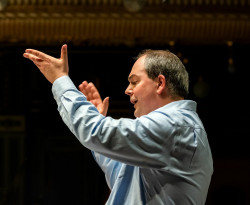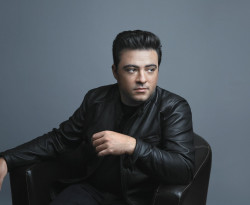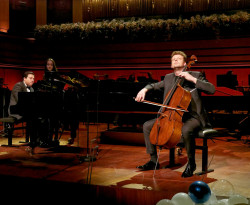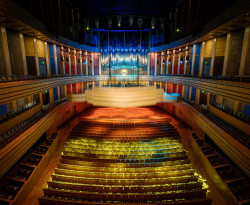Mendelssohn: Chorale cantatas
- Müpa Home LIVE
We regret to inform our esteemed audience that the concert has been cancelled. Valid tickets can be redeemed using the online interface previously set up for this purpose until 21 March.
Thank you for your understanding!
Ticket prices
Add this event to your Google Calendar.
We're broadcasting this performance live!
In spite of the fact that the current extraordinary situation prevents us all from meeting at Müpa Budapest in person, we would still like to make the coming days nicer and more uplifting. This is why we are going to transmit our live performance, without an audience, on our website and YouTube channel.
We look forward to welcoming you to the event, through your screen!
'For me, the chorale cantatas constitute one of the most interesting concert programmes of my life so far. I would even be so bold as to contend that, at the age of 20, Mendelssohn even 'surpasses' his model, Bach, in the sense that at that same age, even Johann Sebastian was not a conductor of such incredible quality as the one that emerges from the score of these choral cantatas. It is also true, however, that Mendelssohn was give a much shorter lifespan...' (György Vashegyi)
Felix Mendelssohn-Bartholdy wrote his eight chorale cantatas between 1827 and 1832, starting them at the age of 18 and finishing the last one at 23. Together, these works comprise the most striking examples among his entire output of the musical influence of Johann Sebastian Bach. Mendelssohn expounded on the influence of Bach in an 1831 letter to Eduard Devrient: 'If my [works] show certain similarities to those of Sebastian Bach, I cannot do anything about it; I wrote them just according to the mood I was in, and even if the words put me into a mood similar to that of old Bach, so much the better. I am sure that you do not think I would merely copy his forms, without the content; if it were so, I should feel such distaste, and such emptiness, that I could never again finish a piece.' In the course of the two-year journey through Europe that he embarked on in May of 1830, Mendelssohn received a collection of Luther's hymns as a gift from his friend the baritone Franz Hauser, and he mentioned this in his diary. Music historians attribute a role of key importance to Hauser's gift: it was very likely out of thanks to his friend for the inspiration he gained from the volume that in each of the chorale cantatas he awarded the baritone soloist, after the chorus, the biggest vocal part.
Presented by: Sysart Kft. Orfeo Music Foundation
Conductor:
-
György Vashegyi
Featuring:
-
Purcell Choir
-
Orfeo Orchestra (on period instruments)







